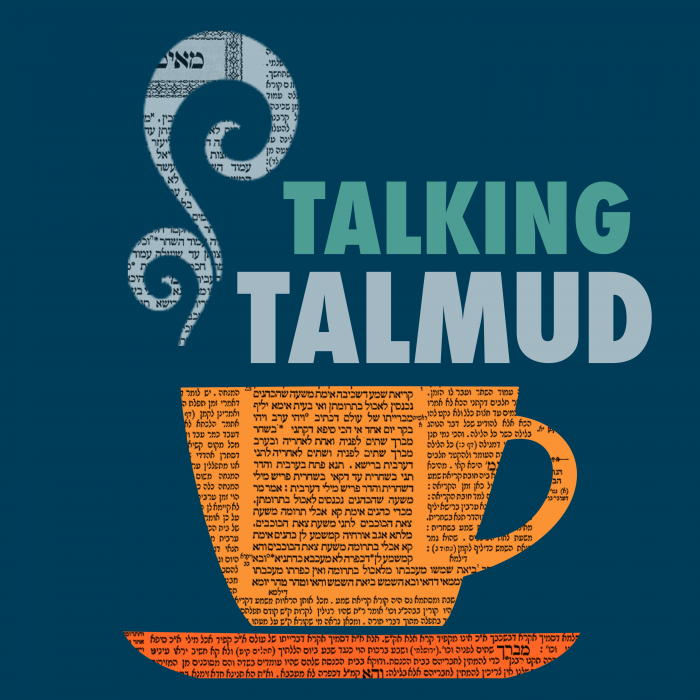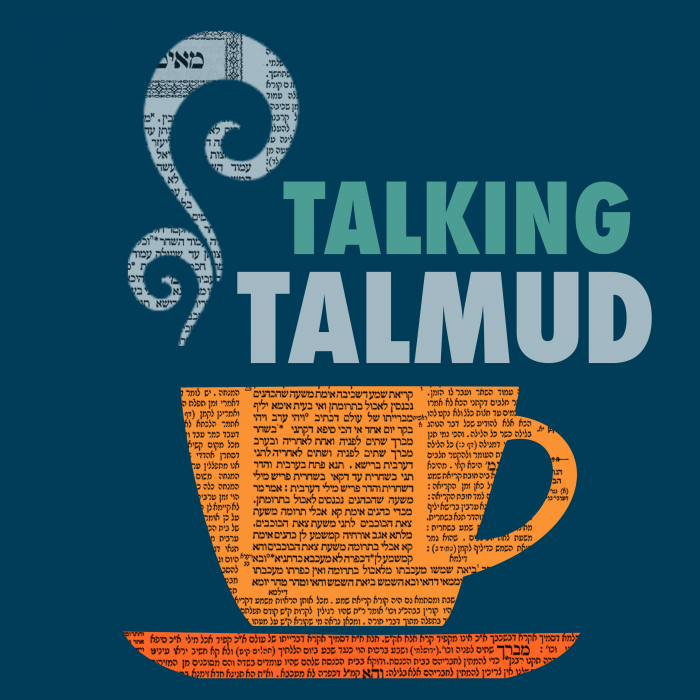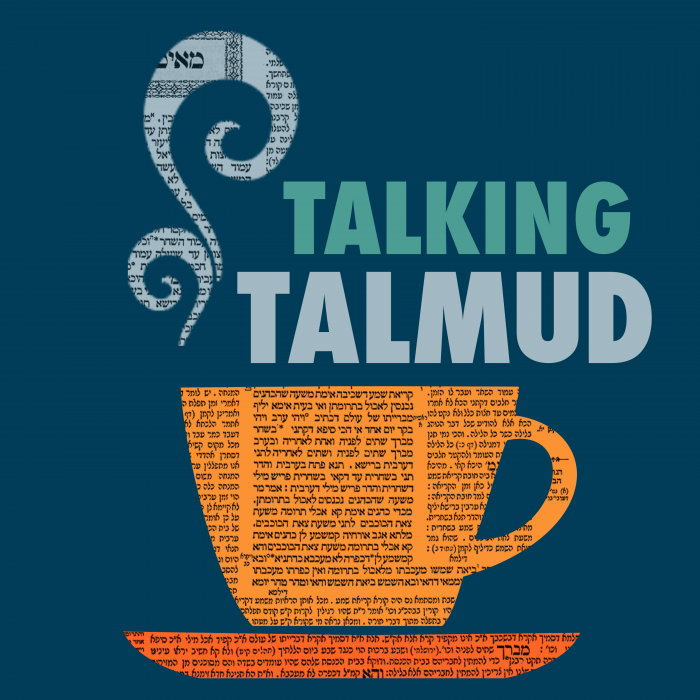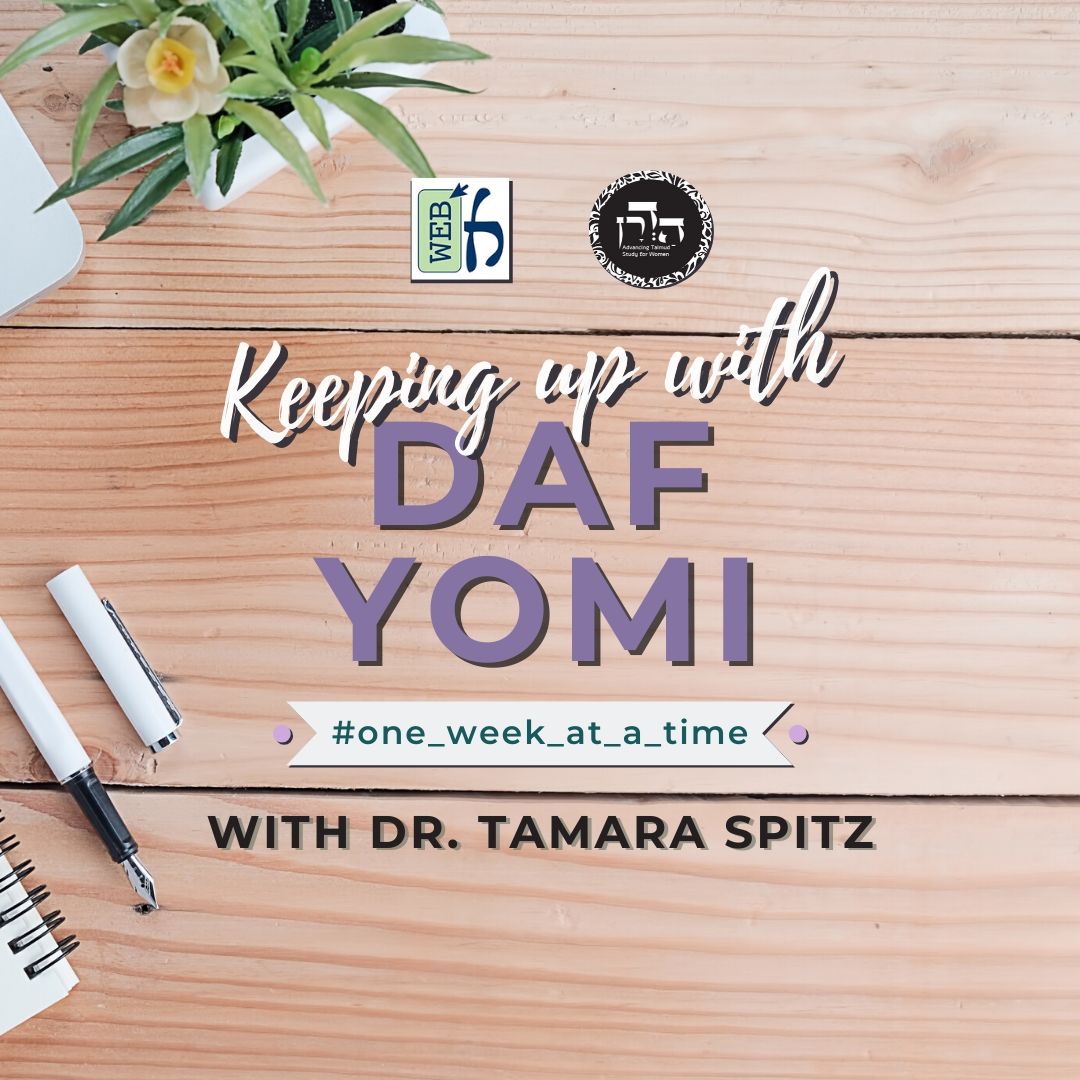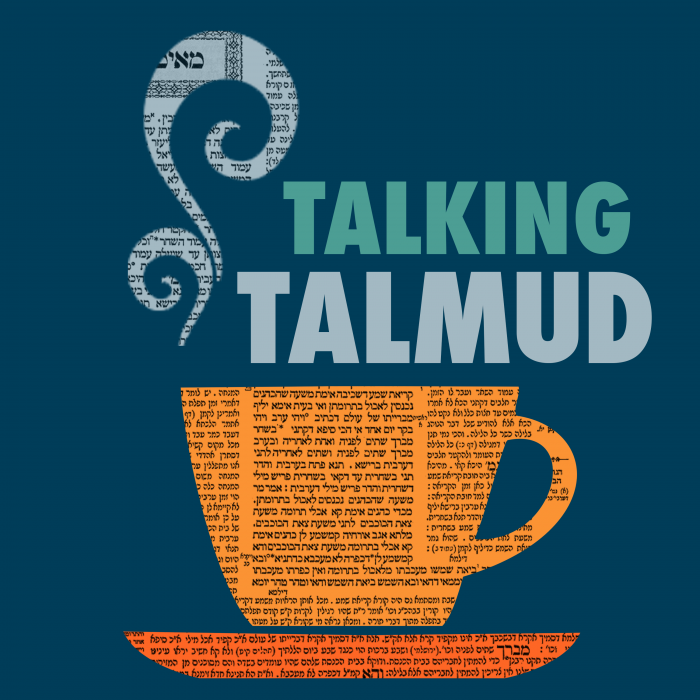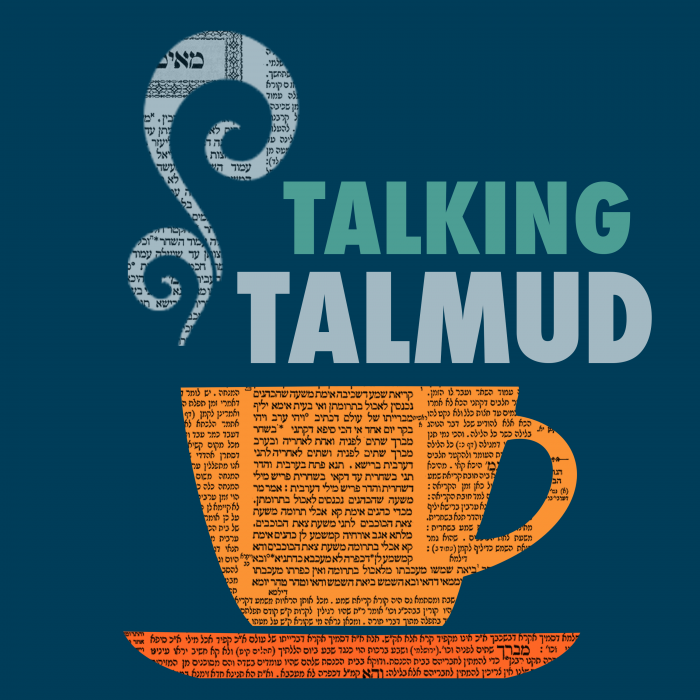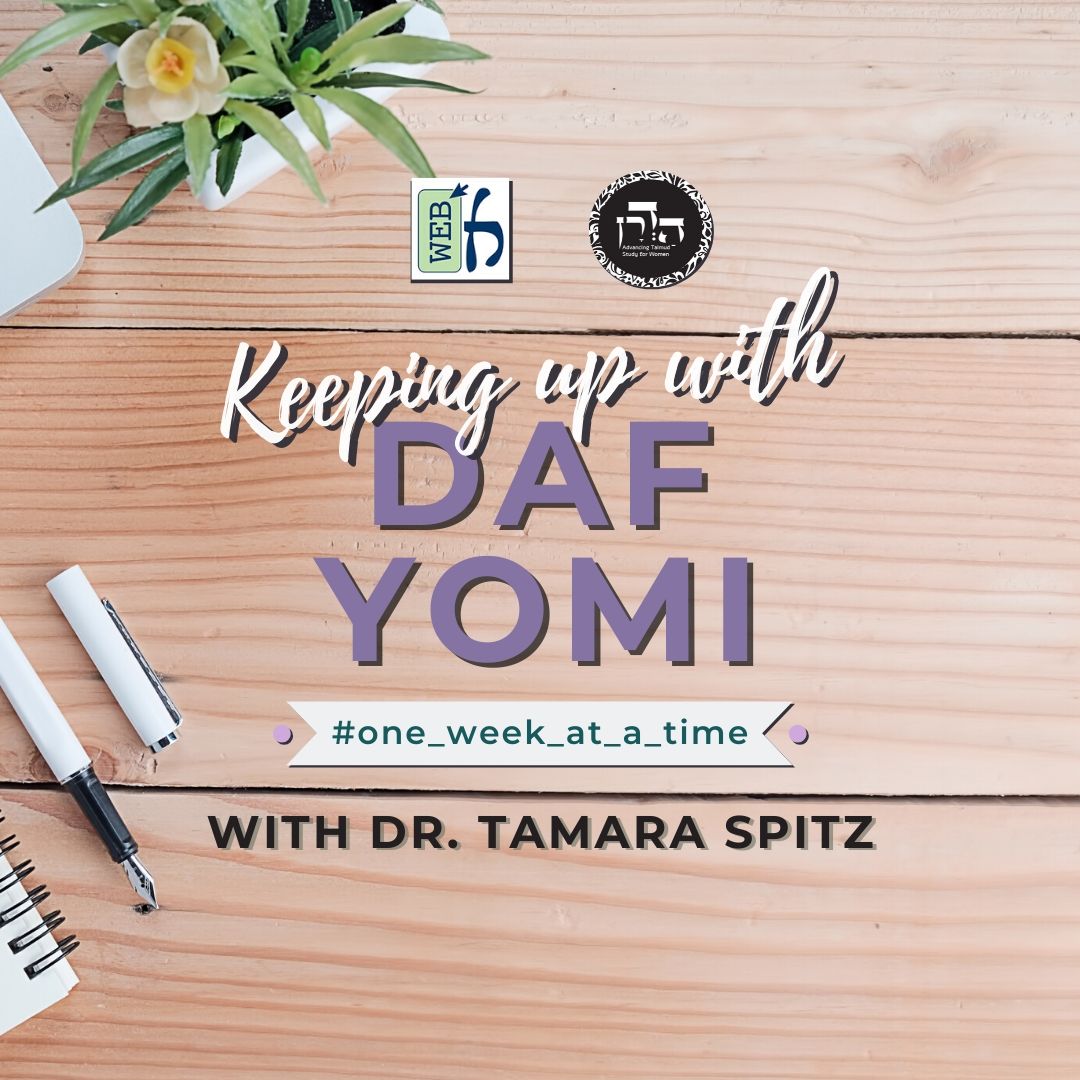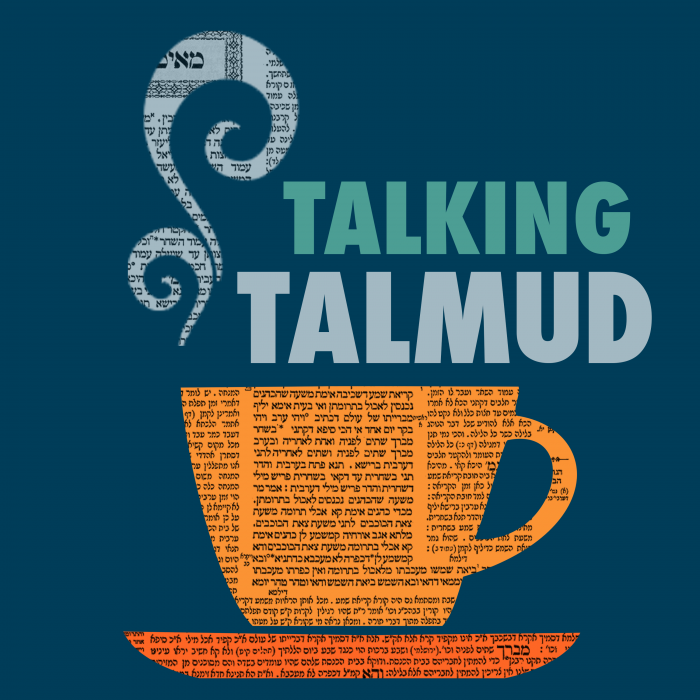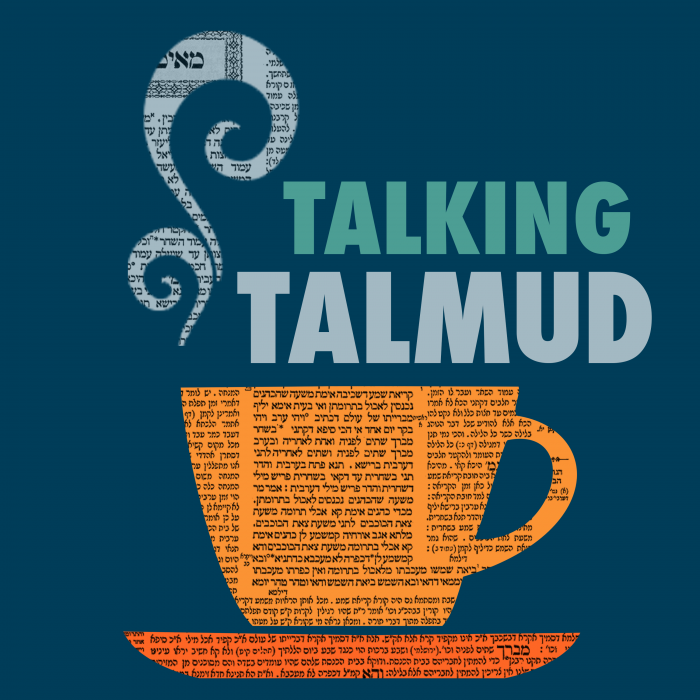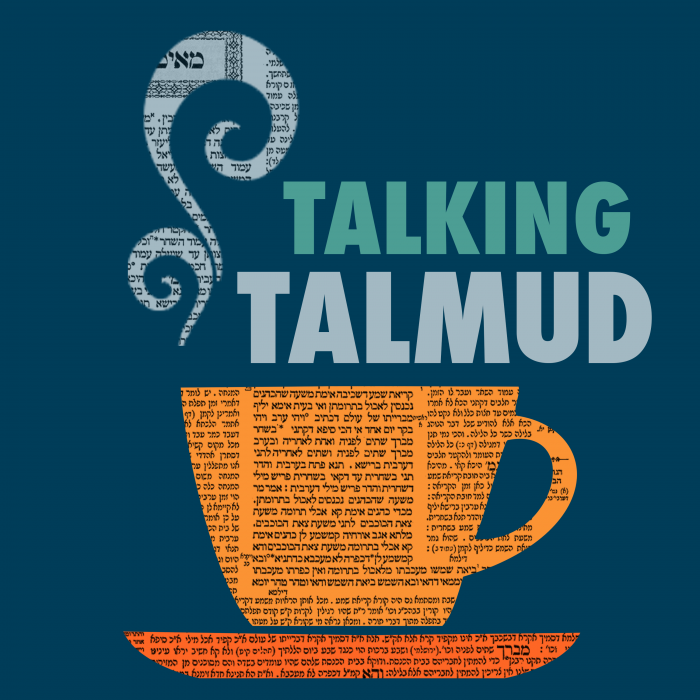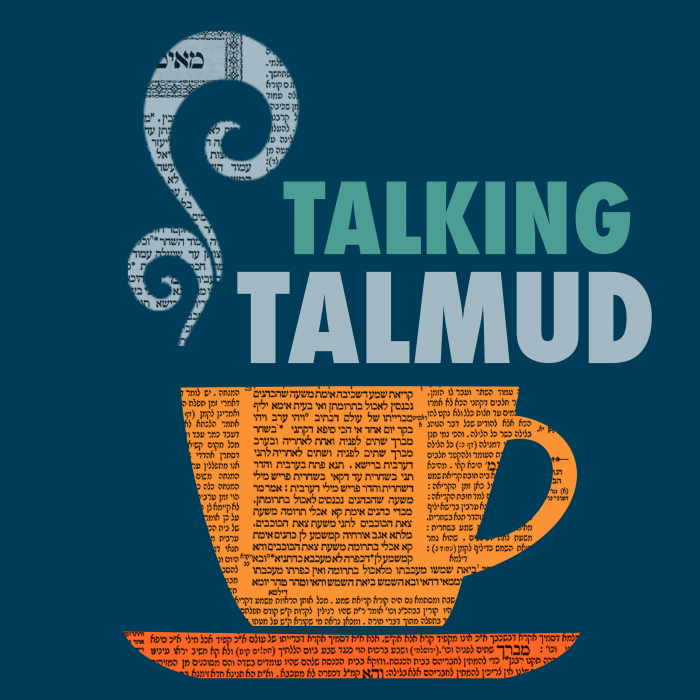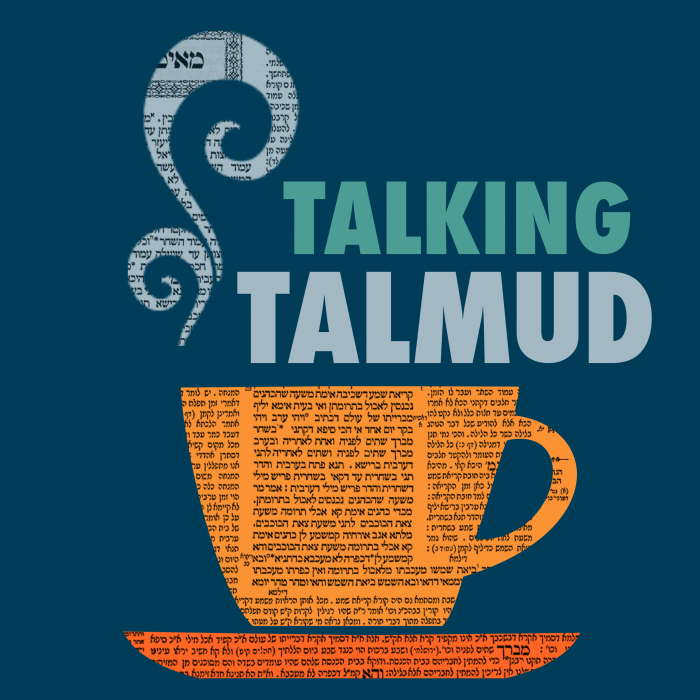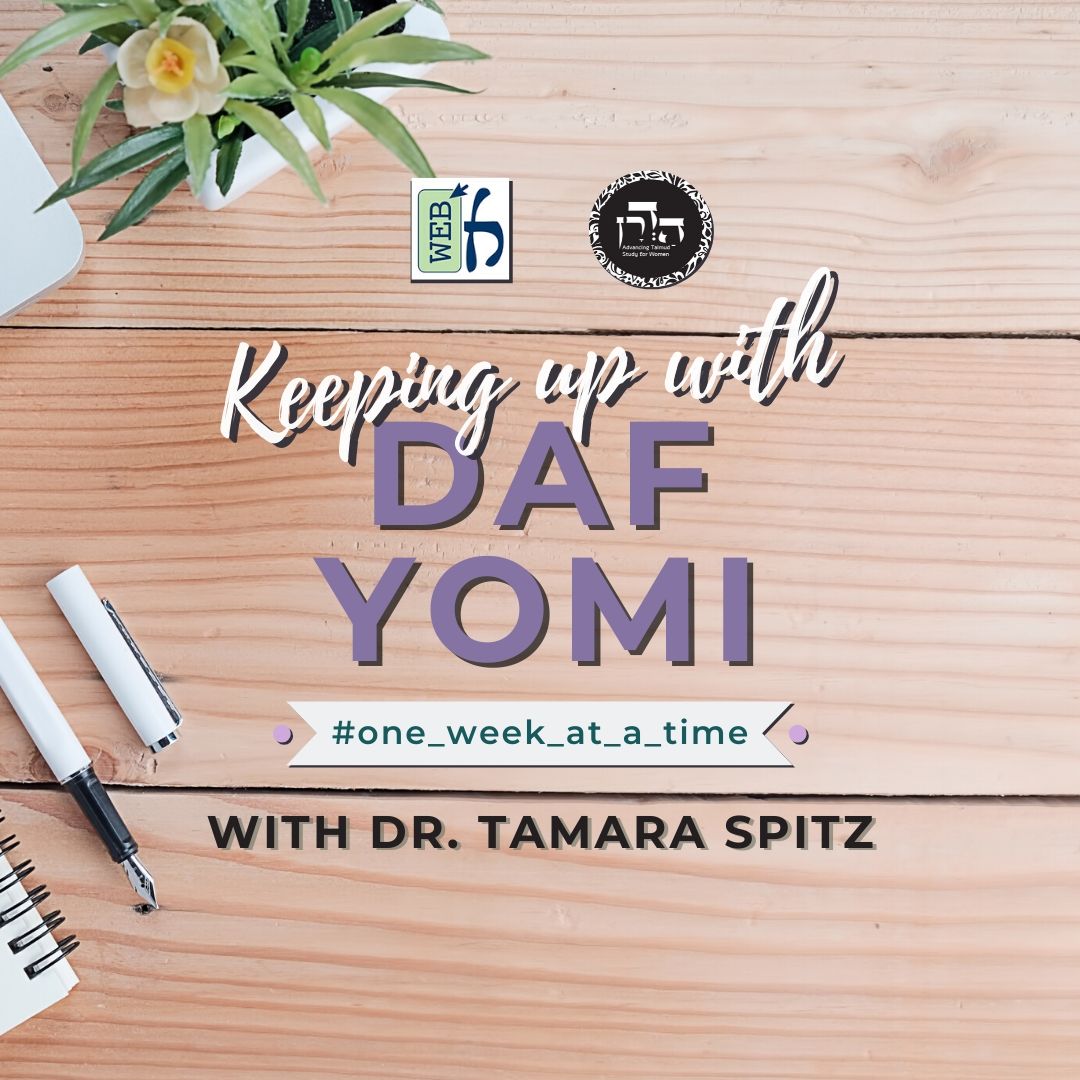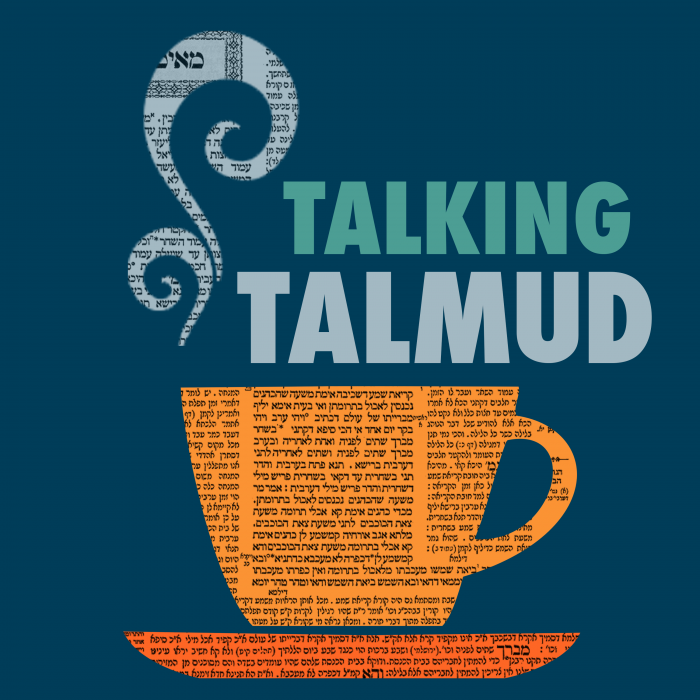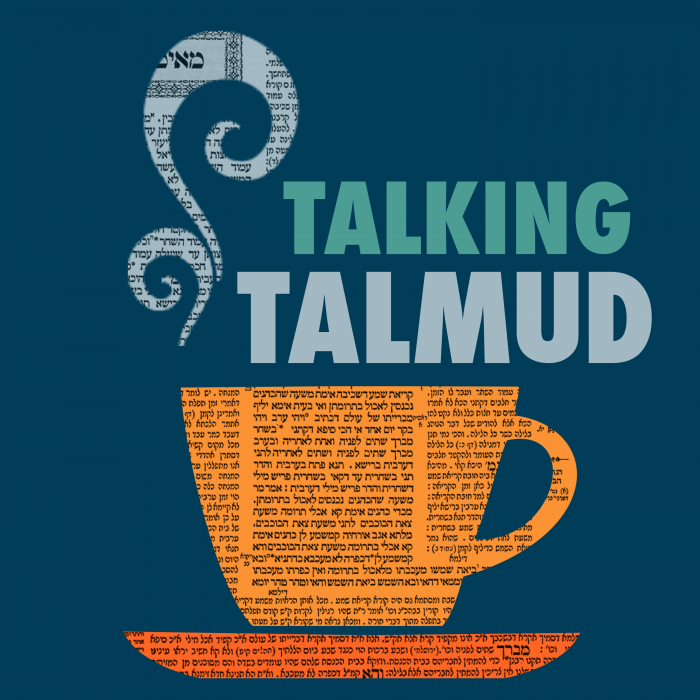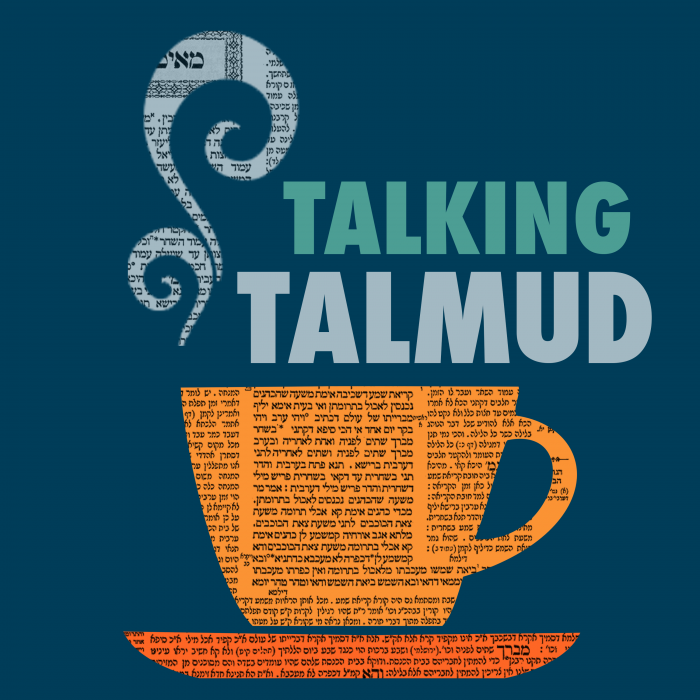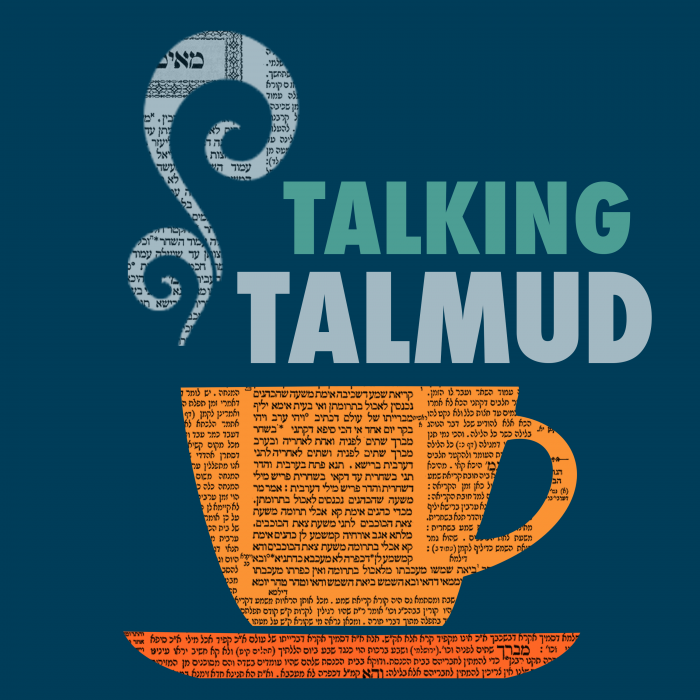What happens if the Jubilee year arrives before anyone redeems the field. There are three different opinions and the gemara tries to find the sources for each opinion. If a son purchases his father’s ancestral field, it is considered an ancestral field or a purchased field.
Arakhin 26
Share this shiur:
This week’s learning is sponsored for the merit and safety of Haymanut (Emuna) Kasau, who was 9 years old when she disappeared from her home in Tzfat two years ago, on the 16th of Adar, 5784 (February 25, 2024), and whose whereabouts remain unknown.
This week’s learning is dedicated of the safety of our nation, the soldiers and citizens of Israel, and for the liberation of the Iranian people. May we soon see the realization of “ליהודים היתה אורה ושמחה וששון ויקר”.
Want to dedicate learning? Get started here:


Today’s daily daf tools:
This week’s learning is sponsored for the merit and safety of Haymanut (Emuna) Kasau, who was 9 years old when she disappeared from her home in Tzfat two years ago, on the 16th of Adar, 5784 (February 25, 2024), and whose whereabouts remain unknown.
This week’s learning is dedicated of the safety of our nation, the soldiers and citizens of Israel, and for the liberation of the Iranian people. May we soon see the realization of “ליהודים היתה אורה ושמחה וששון ויקר”.
Today’s daily daf tools:
Delve Deeper
Broaden your understanding of the topics on this daf with classes and podcasts from top women Talmud scholars.
New to Talmud?
Check out our resources designed to help you navigate a page of Talmud – and study at the pace, level and style that fits you.
The Hadran Women’s Tapestry
Meet the diverse women learning Gemara at Hadran and hear their stories.
Arakhin 26
מִקׇּדְשֵׁי בֶּדֶק הַבַּיִת, וְאֵין דָּנִין קׇדְשֵׁי בֶּדֶק הַבַּיִת מִקׇּדְשֵׁי מִזְבֵּחַ.
from that of other items consecrated for Temple maintenance, e.g., a consecrated house, but one does not derive the halakha with regard to items consecrated for Temple maintenance from items that are consecrated for the altar, such as the two lambs brought on Shavuot.
וְרַבִּי שִׁמְעוֹן נָמֵי, נֵילַף מִמַּקְדִּישׁ בַּיִת! דָּנִין דָּבָר שֶׁמַּתָּנָה לַכֹּהֲנִים, מִדָּבָר שֶׁמַּתָּנָה לַכֹּהֲנִים, וְאֵין דָּנִין דָּבָר שֶׁמַּתָּנָה לַכֹּהֲנִים, מִדָּבָר שֶׁאֵינוֹ מַתָּנָה לַכֹּהֲנִים.
The Gemara objects: And let Rabbi Shimon also derive the halakha by means of a verbal analogy from one who consecrates a house. Why does he disagree with Rabbi Yehuda? The Gemara explains: One derives the halakha of an item that is a gift to the priests, such as an ancestral field that is given to the priests during the Jubilee Year, from that of another item that is a gift to the priests, i.e., the two lambs brought on Shavuot, but one does not derive the halakha of an item that is a gift to the priests from that of an item that is not a gift to the priests, i.e., a consecrated house.
רַבִּי אֱלִיעֶזֶר אוֹמֵר: לֹא נִכְנָסִין, וְלֹא נוֹתְנִין.
§ The mishna teaches that if one consecrates his ancestral field and it is not redeemed before the Jubilee, Rabbi Eliezer says: The priests do not enter into the field, and they also do not give its redemption payment to the Temple treasury. According to Rabbi Eliezer, the priests do not obtain possession of a consecrated field during the Jubilee Year unless another person redeemed it first.
אָמַר רַבָּה: מַאי טַעְמָא דְּרַבִּי אֱלִיעֶזֶר? אָמַר קְרָא: ״וְאִם לֹא יִגְאַל אֶת הַשָּׂדֶה לֹא יִגָּאֵל עוֹד, וְאִם מָכַר אֶת הַשָּׂדֶה וְהָיָה הַשָּׂדֶה בְּצֵאתוֹ בַיּוֹבֵל״.
Rabba said: What is the reason for Rabbi Eliezer’s opinion? It is because the verse states: “And if he will not redeem the field, or if he sold the field to another man, it shall not be redeemed anymore. But the field, when it goes out in the Jubilee, shall be holy for the Lord, as a dedicated field; his ancestral possession shall be for the priest” (Leviticus 27:20–21). According to Rabba, Rabbi Eliezer maintains that these verses teach two separate halakhot, and should be read as follows: “And if he will not redeem the field…it shall not be redeemed anymore,” as an ancestral field, and: “Or if he sold the field…But the field, when it goes out in the Jubilee…his ancestral possession shall be for the priest.” Accordingly, if the field has not yet been sold to another man, it is not transferred to the priests during the Jubilee.
אָמַר אַבָּיֵי: סַכִּינָא חֲרִיפָא מַפְסְקָא קְרָאֵי? אֶלָּא אָמַר אַבָּיֵי: טַעְמָא דְּרַבִּי אֱלִיעֶזֶר כִּדְתַנְיָא: ״לֹא יִגָּאֵל״ — יָכוֹל לֹא תְּהֵא נִגְאֶלֶת שֶׁתְּהֵא לְפָנָיו כִּשְׂדֵה מִקְנָה? תַּלְמוּד לוֹמַר ״עוֹד״ — לִכְמוֹת שֶׁהָיְתָה אֵינָהּ נִגְאֶלֶת, אֲבָל נִגְאֶלֶת שֶׁתְּהֵא לְפָנָיו כִּשְׂדֵה מִקְנָה.
Abaye said: Does a sharp knife cut through the verses, that they may be interpreted by reading the words out of order? Rather, Abaye said: The reason for Rabbi Eliezer’s opinion is as it is taught in a baraita: Since the verse states: “And if he will not redeem the field, or if he sold the field to another man, it shall not be redeemed,” one might have thought that this means it shall not be redeemed at all by its owner, even for it to be treated for him like a purchased field, which remains in his possession until the Jubilee. Therefore, the verse states: “Anymore,” indicating that it shall not be redeemed in order for it to return to the way it was, i.e., to regain the status of an ancestral field, but it may be redeemed for it to be treated for him like a purchased field.
אֵימַת? אִילֵּימָא בְּיוֹבֵל רִאשׁוֹן — אַמַּאי אֵינָהּ נִגְאֶלֶת? שְׂדֵה אֲחוּזָּה נָמֵי הָוְיָא! אֶלָּא פְּשִׁיטָא בְּיוֹבֵל שֵׁנִי.
Abaye continues: According to this baraita, of when, i.e., about which time period, is the verse speaking? If we say that it is referring to a redemption occurring during the first Jubilee cycle in which the field was consecrated, then why may it not be redeemed in order for it to return to the way it was? At that point, it is even redeemable as an ancestral field, because if the owner redeems it then, it is not removed from his possession during the Jubilee Year. Rather, it is obvious that the baraita interprets the verse as referring to a redemption occurring during the second Jubilee cycle.
וּלְמַאן? אִילֵימָא לְרַבִּי יְהוּדָה וְרַבִּי שִׁמְעוֹן, לְכֹהֲנִים נָפְקָא! אֶלָּא לָאו רַבִּי אֱלִיעֶזֶר, וּשְׁמַע מִינַּהּ טַעְמָא דְּרַבִּי אֱלִיעֶזֶר מֵהָכָא.
And according to whose opinion is this baraita? If we say that it is according to either Rabbi Yehuda or Rabbi Shimon, this cannot be correct, as according to them, the field leaves the possession of the Temple treasury and is given to the priests during the first Jubilee Year, after which it may no longer be redeemed. Rather, is it not in accordance with the opinion of Rabbi Eliezer, who maintains that the field remains in the possession of the Temple treasury until it is redeemed, even during a subsequent Jubilee cycle? And consequently, conclude from this baraita that the reason for Rabbi Eliezer’s opinion is from here, i.e., from the superfluous term “anymore.”
וְתִסְבְּרָא, רַבִּי יְהוּדָה וְרַבִּי שִׁמְעוֹן הַאי ״עוֹד״ מַאי דָּרְשִׁי בֵּיהּ? אֶלָּא, הָכָא בְּמַאי עָסְקִינַן — בְּשָׂדֶה שֶׁיָּצְאָה לַכֹּהֲנִים, וְהִקְדִּישָׁהּ כֹּהֵן, וְאָתוּ בְּעָלִים לְמִיפְרְקַהּ.
The Gemara asks: And can you understand the baraita this way? If so, then what do Rabbi Yehuda and Rabbi Shimon derive from this term: “Anymore”? Rather, the baraita can be understood in accordance with their opinions as well, and what are we dealing with here? We are dealing with an ancestral field whose owner consecrated it and did not redeem it, which left the possession of the Temple treasury and was given to the priests during the first Jubilee Year; and the priest who received the field then consecrated it, and then the original owner came to redeem it from the Temple treasury.
סָלְקָא דַּעְתָּךְ אָמֵינָא: לָא תִּיפְרוֹק, שֶׁתְּהֵא לְפָנָיו כִּשְׂדֵה מִקְנָה — תַּלְמוּד לוֹמַר: ״עוֹד״, לִכְמוֹת שֶׁהָיְתָה אֵינָהּ נִגְאֶלֶת, אֲבָל נִגְאֶלֶת שֶׁתְּהֵא לְפָנָיו כִּשְׂדֵה מִקְנָה.
It might enter your mind to say: Since the owner failed to redeem this field during the first Jubilee cycle, it shall not be redeemed by him at all, even for it to be treated for him like a purchased field. Therefore, the verse states: “Anymore,” indicating that it shall not be redeemed in order for it to return to the way it was, i.e., an ancestral field, but it may be redeemed for it to be treated for him like a purchased field, which remains in his possession only until the Jubilee Year.
וְהָתַנְיָא: ״בִּשְׁנַת הַיּוֹבֵל יָשׁוּב הַשָּׂדֶה לַאֲשֶׁר קָנָהוּ מֵאִתּוֹ״, יָכוֹל יַחְזוֹר לַגִּזְבָּר שֶׁלְּקָחוֹ מִמֶּנּוּ? תַּלְמוּד לוֹמַר: ״לַאֲשֶׁר לוֹ אֲחֻזַּת הָאָרֶץ״.
And similarly, it is taught in a baraita: With regard to one who consecrated a purchased field and redeemed it, since the verse states: “In the Jubilee Year the field shall return to the one from whom it was bought” (Leviticus 27:24), one might have thought that the field shall return to the Temple treasurer, from whom he bought it when he redeemed it. Therefore, the verse states immediately afterward: “To the one to whom the possession of the land belongs,” i.e., it goes to the ancestral owner who initially sold the field to the one who consecrated it.
יֵאָמֵר: ״לַאֲשֶׁר לוֹ אֲחֻזַּת הָאָרֶץ״, מָה תַּלְמוּד לוֹמַר ״לַאֲשֶׁר קָנָהוּ מֵאִתּוֹ״? שָׂדֶה שֶׁיָּצָאת לַכֹּהֲנִים, וּמְכָרָהּ כֹּהֵן, וְהִקְדִּישָׁהּ לוֹקֵחַ, וּגְאָלָהּ אַחֵר — יָכוֹל תַּחְזוֹר לַבְּעָלִים הָרִאשׁוֹנִים? תַּלְמוּד לוֹמַר: ״לַאֲשֶׁר קָנָהוּ״.
The baraita continues: If so, let the verse simply state: “To the one to whom the possession of the land belongs.” Why must the verse state first: “To the one from whom it was bought”? The baraita answers: The verse is referring to an ancestral field whose owner consecrated it and did not redeem it, which left the possession of the Temple treasury and was given to the priests during the Jubilee Year, and the priest who received the field then sold it to another, and the buyer then consecrated it, and another person redeemed it from the Temple treasury. One might have thought that when the next Jubilee arrives, it shall return to the original owner. Therefore, the verse states: “In the Jubilee Year the field shall return to the one from whom it was bought,” indicating that the field is returned to the priest who sold the field.
וְאִיצְטְרִיךְ ״לֹא יִגָּאֵל״, וְאִיצְטְרִיכָא לְמִיכְתַּב ״לַאֲשֶׁר קָנָהוּ״.
The Gemara notes: And it was necessary for the Torah to write: “It shall not be redeemed,” and it was also necessary for it to write: “To the one from whom it was bought,” despite the fact both phrases apparently teach the same halakha, i.e., that after a consecrated ancestral field is left unredeemed and given to the priests during the Jubilee Year, it never returns to the original owner.
דְּאִי כְּתַב רַחֲמָנָא ״לֹא יִגָּאֵל״, דְּלָא קָא הָדְרָה כְּלָל, אֲבָל הָכָא דְּקָא הָדְרָה, תִּיהְדַּר לְמָרַהּ קַמָּא, כְּתַב רַחֲמָנָא ״לַאֲשֶׁר קָנָהוּ״.
The Gemara explains: Because if the Merciful One had written only: “It shall not be redeemed,” one might have thought that the field does not return to the original owner only in a case where the priest consecrates the field and the original owner redeems it, as an ancestral field that is consecrated by its owner and redeemed by another does not return at all, but is divided among the priests. But here, where the priest sold the field that he received and the field was consecrated by the buyer as a purchased field and subsequently redeemed by another, as the field does return to its owner in the Jubilee Year, perhaps it should return to its original owner, and not the priest. Therefore, the Merciful One wrote: “To the one from whom it was bought,” indicating that it returns to the priest.
וְאִי כְּתַב רַחֲמָנָא ״לַאֲשֶׁר קָנָהוּ״, דְּלָא קָא יָהֲבִי בְּעָלִים דָּמֵי, אֲבָל הָכָא, דְּקָא יָהֲבִי דְּמֵי, תֵּיקוּם בִּידַיְיהוּ, כְּתַב רַחֲמָנָא ״לֹא יִגָּאֵל״.
And if the Merciful One had written only: “To the one from whom it was bought,” one might have thought that the field does not return to its original owner during the Jubilee Year only in a case where the priest sold it and the buyer consecrated it, as the owner did not give any payment for the field to the Temple treasury. But here, where the priest consecrated the field and its original owner redeemed it, as he gives payment for the field to the Temple treasury, perhaps it should remain in his hands as his ancestral field. Therefore, the Merciful One wrote: “It shall not be redeemed.”
וְאִי כְּתַב רַחֲמָנָא ״לֹא יִגָּאֵל״, וְלָא כְּתַב ״עוֹד״, הֲוָה אָמֵינָא: לָא תִּיפְרוֹק כְּלָל, כְּתַב רַחֲמָנָא ״עוֹד״, לִכְמוֹת שֶׁהָיְתָה אֵינָהּ נִגְאֶלֶת, אֲבָל נִגְאֶלֶת שֶׁתְּהֵא לְפָנָיו כִּשְׂדֵה מִקְנָה.
And if the Merciful One had written only: “It shall not be redeemed,” and did not write: “Anymore,” I would say that it shall not be redeemed at all, as its original owner failed to redeem it during the first Jubilee cycle. Therefore, the Merciful One writes: “Anymore,” to indicate that it shall not be redeemed in order for it to return to the way it was, i.e., an ancestral field, but it may be redeemed for it to be treated for him like a purchased field.
מַאי הָוֵי עֲלַהּ? אָמַר רָבָא, אָמַר קְרָא: ״וְהָיָה הַשָּׂדֶה בְּצֵאתוֹ בַיּוֹבֵל״, בְּצֵאתוֹ מִיַּד אַחֵר.
The Gemara asks: What conclusion was reached about it? In other words, now that both suggestions have been rejected, what is the reason for Rabbi Eliezer’s opinion that a consecrated ancestral field that has not been redeemed by the Jubilee Year is not given to the priests? Rava said that the verse states: “But the field, when it goes out in the Jubilee, shall be holy for the Lord, as a dedicated field; his ancestral possession shall be for the priest” (Leviticus 27:21). The term “when it goes out” indicates that it is given to the priests only when it goes out during the Jubilee Year from the possession of another person, who redeemed it from the Temple treasury.
אִיבַּעְיָא לְהוּ: בְּעָלִים בְּיוֹבֵל שֵׁנִי, כְּאַחֵר דָּמוּ אוֹ לָא?
§ A dilemma was raised before the Sages: According to Rabbi Eliezer, if the owner consecrated his ancestral field and failed to redeem it before the first Jubilee Year, but he redeemed it during the second Jubilee cycle, is he considered like another person who redeemed the field, in which case it is given to the priests at the following Jubilee Year, or not, i.e., as the one who ultimately redeemed the field first was the owner, does it remain in his possession as it would have if he had redeemed it during the first Jubilee cycle?
תָּא שְׁמַע: ״לֹא יִגָּאֵל״ — יָכוֹל לֹא תְּהֵא נִגְאֶלֶת, שֶׁתְּהֵא לְפָנָיו כִּשְׂדֵה מִקְנָה? תַּלְמוּד לוֹמַר ״עוֹד״ — לִכְמוֹת שֶׁהָיְתָה אֵינָהּ נִגְאֶלֶת, אֲבָל נִגְאֶלֶת שֶׁתְּהֵא לְפָנָיו כִּשְׂדֵה מִקְנָה.
The Gemara suggests: Come and hear a resolution of this dilemma from the following baraita: Since the verse states: “And if he will not redeem the field, or if he sold the field to another man, it shall not be redeemed” (Leviticus 27:20), one might have thought that this means it shall not be redeemed at all by its owner, even for it to be treated for him like a purchased field. Therefore, the verse states: “Anymore,” indicating that it shall not be redeemed in order for it to return to the way it was, i.e., an ancestral field, but it may be redeemed for it to be treated for him like a purchased field.
אֵימַת? אִילֵּימָא בְּיוֹבֵל רִאשׁוֹן — אַמַּאי אֵינָהּ נִגְאֶלֶת? אֲחוּזָּה נָמֵי הָוְיָא! אֶלָּא פְּשִׁיטָא בְּיוֹבֵל שֵׁנִי.
The Gemara continues: According to this baraita, of when, i.e., about which time period, is the verse speaking? If we say that it is referring to a redemption that occurs during the first Jubilee cycle, in which the field was consecrated, why may it not be redeemed in order for it to return to the way it was? At that point it is even redeemable as an ancestral field, since if the owner redeems it then, it is not removed from his possession during the Jubilee Year. Rather, it is obvious that the baraita interprets the verse as referring to a redemption occurring during the second Jubilee cycle.
וּלְמַאן? אִי לְרַבִּי יְהוּדָה וְרַבִּי שִׁמְעוֹן — לְכֹהֲנִים נָפְקָא! אֶלָּא לָאו לְרַבִּי אֱלִיעֶזֶר, וּשְׁמַע מִינַּהּ: בְּעָלִים בְּיוֹבֵל שֵׁנִי כְּאַחֵר דָּמוּ.
And according to whose opinion is this baraita? If we say that it is according to either Rabbi Yehuda or Rabbi Shimon, this cannot be correct, as according to them, the field leaves the possession of the Temple treasury and is given to the priests during the first Jubilee Year, after which it may no longer be redeemed. Rather, is it not in accordance with the opinion of Rabbi Eliezer, who maintains that the field remains in the possession of the Temple treasury until it is redeemed, even during a subsequent Jubilee cycle? And consequently, you can conclude from this baraita that according to Rabbi Eliezer, an owner who redeems his ancestral field from the Temple treasury during the second Jubilee cycle is considered like another, as he may redeem it only for it to be treated like a purchased field.
וְתִסְבְּרַאּ?! רַבִּי יְהוּדָה וְרַבִּי שִׁמְעוֹן הַאי ״עוֹד״ מַאי דָּרְשִׁי בֵּיהּ? אֶלָּא, הָכָא בְּמַאי עָסְקִינַן? בְּשָׂדֶה שֶׁיָּצְאָה לַכֹּהֲנִים, וְהִקְדִּישָׁהּ כֹּהֵן, וַאֲתוֹ בְּעָלִים לְמִיפְרְקַהּ. סָלְקָא דַּעְתָּךְ אָמֵינָא: לָא תִּיפְרוֹק, שֶׁתְּהֵא כִּשְׂדֵה מִקְנָה. תַּלְמוּד לוֹמַר: ״עוֹד״ — לִכְמוֹת שֶׁהָיְתָה אֵינָהּ נִגְאֶלֶת, אֲבָל נִגְאֶלֶת שֶׁתְּהֵא לְפָנָיו כִּשְׂדֵה מִקְנָה.
The Gemara asks: And can you understand the baraita this way? If so, what do Rabbi Yehuda and Rabbi Shimon derive from this term: “Anymore”? Rather, what are we dealing with here? We are dealing with an ancestral field whose owner consecrated it and did not redeem it, which left the possession of the Temple treasury and was given to the priests at the first Jubilee Year; and the priest who received the field subsequently consecrated it, and then the original owner came to redeem it from the Temple treasury. It may enter your mind to say: Since the owner failed to redeem it during the first Jubilee cycle, it shall not be redeemed by him at all, even for it to be treated for him like a purchased field. Therefore, the verse states: “Anymore,” indicating that it shall not be redeemed in order for it to return to the way it was, i.e., an ancestral field, but it may be redeemed for it to be treated for him like a purchased field.
וְהָתַנְיָא: ״יָשׁוּב הַשָּׂדֶה לַאֲשֶׁר קָנָהוּ מֵאִתּוֹ״, יָכוֹל יַחְזוֹר לַגִּזְבָּר שֶׁלְּקָחָהּ הֵימֶנּוּ? תַּלְמוּד לוֹמַר: ״לַאֲשֶׁר לוֹ אֲחֻזַּת הָאָרֶץ״.
And similarly, it is taught in a baraita: With regard to one who consecrated a purchased field and redeemed it, since the verse states: “In the Jubilee Year the field shall return to the one from whom it was bought” (Leviticus 27:24), one might have thought that the field shall return to the Temple treasurer, from whom he bought it when he redeemed it. Therefore, the verse states: “To the one to whom the possession of the land belongs,” i.e., the ancestral owner.
מָה תַּלְמוּד לוֹמַר ״לַאֲשֶׁר קָנָהוּ״? שָׂדֶה שֶׁיָּצְאָה לַכֹּהֲנִים, וּמְכָרָהּ כֹּהֵן, וְהִקְדִּישָׁהּ לוֹקֵחַ, וּגְאָלָהּ אַחֵר — יָכוֹל תַּחְזוֹר לַבְּעָלִים הָרִאשׁוֹנִים? תַּלְמוּד לוֹמַר ״לַאֲשֶׁר קָנָהוּ״.
The baraita continues: If so, why must the verse state: “To the one from whom it was bought”? The baraita answers: The verse is referring to an ancestral field that was consecrated and not redeemed, and which therefore left the possession of the Temple treasury and was given to the priests at the Jubilee Year, and the priest who received the field then sold it to another, and the buyer then consecrated it, and another person redeemed it from the Temple treasury. One might have thought that when the next Jubilee arrives, it shall return to the original owner. Therefore, the verse states: “In the Jubilee Year the field shall return to the one from whom it was bought,” indicating that the field is returned to the priest who sold the field.
וְאִיצְטְרִיךְ לְמִיכְתַּב ״לֹא יִגָּאֵל״, וְאִיצְטְרִיךְ לְמִיכְתַּב ״לַאֲשֶׁר קָנָהוּ״, דְּאִי כְּתַב רַחֲמָנָא ״לֹא יִגָּאֵל״ דְּלָא קָא הָדְרָא כְּלָל, כְּתַב רַחֲמָנָא ״לַאֲשֶׁר קָנָהוּ״.
The Gemara notes: And it was necessary for the Torah to write: “It shall not be redeemed,” and it was also necessary for it to write: “To the one from whom it was bought,” because if the Merciful One had written merely: “It shall not be redeemed,” one might have thought that the field does not return to the original owner only in a case where the priest consecrates the field and the original owner redeems it, as an ancestral field that is consecrated by its owner and redeemed by another does not return at all. But in a case where the priest sold the field to another and the buyer consecrated it, perhaps it should return to its original owner. Therefore, the Merciful One wrote: “To the one from whom it was bought,” indicating that it returns to the priest.
וְאִי כְּתַב רַחֲמָנָא ״לַאֲשֶׁר קָנָהוּ״, דְּלָא קָיָהֲבִי בְּעָלִים דְּמֵי, אֲבָל הָכָא, דְּיָהֲבִי בְּעָלִים דְּמֵי, דְּתֵיקוּם בִּידַיְהוּ, כְּתַב רַחֲמָנָא ״לֹא יִגָּאֵל״.
And if the Merciful One had written merely: “To the one from whom it was bought,” one might think that the field does not return to its original owner at the Jubilee Year only in a case where the priest sold it and the buyer consecrated it, as the owner did not give any payment for the field to the Temple treasury. But here, where the priest consecrated the field and its original owner redeemed it, as the owner gives payment for the field to the Temple treasury, one might have thought that it should remain in his hands, as his ancestral field. Therefore, the Merciful One wrote: “It shall not be redeemed.”
וְאִי כְּתַב רַחֲמָנָא ״לֹא יִגָּאֵל״, וְלָא כְּתַב ״עוֹד״, הֲוָה אָמֵינָא לָא תִּיפְרוֹק כְּלָל, כְּתַב רַחֲמָנָא ״עוֹד״, לִכְמוֹת שֶׁהָיְתָה אֵינָהּ נִגְאֶלֶת, אֲבָל נִגְאֶלֶת שֶׁתְּהֵא לְפָנָיו כִּשְׂדֵה מִקְנָה.
And if the Merciful One had written only: “It shall not be redeemed,” and did not write: “Anymore,” I would say that it shall not be redeemed at all, as its original owner failed to redeem it during the first Jubilee cycle. Therefore, the Merciful One writes: “Anymore,” to indicate that it shall not be redeemed in order for it to return to the way it was, but it may be redeemed for it to be treated for him like a purchased field.
מַאי הָוֵי עֲלַהּ? תָּא שְׁמַע: רַבִּי אֱלִיעֶזֶר אוֹמֵר: גְּאָלָהּ בְּעָלִים בְּיוֹבֵל שֵׁנִי — יוֹצְאָה לַכֹּהֲנִים בַּיּוֹבֵל.
The Gemara asks: Since it has been established that the term “anymore” is necessary according to all opinions, what conclusion was reached about the original dilemma with regard to whether the owner is considered like another person during the second Jubilee cycle? The Gemara answers: Come and hear a proof from the following baraita: Rabbi Eliezer says: If the owner redeemed it during the second Jubilee cycle, it leaves the possession of the Temple treasury and is given to the priests during the Jubilee Year.
אֲמַר לֵיהּ רָבִינָא לְרַב אָשֵׁי: הָאֲנַן לָא תְּנַן הָכִי, רַבִּי אֱלִיעֶזֶר אוֹמֵר: אֵין הַכֹּהֲנִים נִכְנָסִין לְתוֹכָהּ עַד שֶׁיִּגְאָלֶנָּה אַחֵר! אֲמַר לֵיהּ: בְּעָלִים בְּיוֹבֵל שֵׁנִי כְּאַחֵר דָּמוּ.
Ravina said to Rav Ashi: But we did not learn this interpretation of Rabbi Eliezer’s opinion in the mishna. Instead, the mishna states that Rabbi Eliezer says: The priests never enter into a consecrated field during the Jubilee Year until another person redeems it first. This indicates that if the owner, rather than any other person, is the one who ultimately redeems the field, it remains in his possession even if he did so during the second Jubilee cycle. Rav Ashi said to Ravina: During the second Jubilee cycle, the owner is considered like another person.
אִיכָּא דְּאָמְרִי: רַבִּי אֱלִיעֶזֶר אוֹמֵר: גְּאָלָהּ בְּיוֹבֵל שֵׁנִי — אֵינָהּ יוֹצְאָה לַכֹּהֲנִים בַּיּוֹבֵל. אֲמַר לֵיהּ רָבִינָא לְרַב אָשֵׁי: אַף אֲנַן נָמֵי תְּנֵינָא, רַבִּי אֱלִיעֶזֶר אוֹמֵר: אֵין הַכֹּהֲנִים נִכְנָסִין לְתוֹכָהּ עַד שֶׁיִּגְאָלֶנָּה אַחֵר! אֲמַר לֵיהּ: אִי מִמַּתְנִיתִין הֲוָה אָמֵינָא: בְּעָלִים בְּיוֹבֵל שֵׁנִי כְּאַחֵר דָּמוּ, קָא מַשְׁמַע לַן.
Some say a different version of the baraita and ensuing discussion: Rabbi Eliezer says: If the owner redeemed it during the second Jubilee cycle, it does not leave the possession of the Temple treasury and is not given to the priests during the Jubilee Year. Ravina said to Rav Ashi: Why must a proof be brought from this baraita? We learn in the mishna as well that Rabbi Eliezer says: The priests never enter into a consecrated field during the Jubilee Year until another person redeems it first. Rav Ashi said to him: If a proof is learned from the mishna alone I would say that during the second Jubilee cycle the owner is considered like another person. Therefore, the baraita teaches us that according to Rabbi Eliezer the owner is not considered like another person, and the field returns to him as an ancestral possession.
מַתְנִי׳ הַלּוֹקֵחַ שָׂדֶה מֵאָבִיו, וּמֵת אָבִיו, וְאַחַר כָּךְ הִקְדִּישָׁהּ — הֲרֵי הִיא כִּשְׂדֵה אֲחוּזָּה. הִקְדִּישָׁהּ וְאַחַר כָּךְ מֵת אָבִיו — הֲרֵי הִיא כְּשָׂדֶה מִקְנָה, דִּבְרֵי רַבִּי מֵאִיר.
MISHNA: One who purchases an ancestral field from his father, and his father subsequently died and afterward the son consecrated it, its halakhic status is like that of an ancestral field, as he inherited his father’s ancestral rights prior to the consecration. Consequently, the field’s redemption price is calculated on the basis of fifty sela per beit kor, and if another redeems it instead of the son, it is given to the priests during the Jubilee Year. But if the son consecrated the field and afterward his father died, its halakhic status is like that of a purchased field, whose redemption price is based on its monetary value, and which will return to the ancestral owner, i.e., the son, at the Jubilee; this is the statement of Rabbi Meir.
רַבִּי יְהוּדָה וְרַבִּי שִׁמְעוֹן אוֹמְרִים: הֲרֵי הִיא כִּשְׂדֵה אֲחוּזָּה, שֶׁנֶּאֱמַר: ״אִם מִשְּׂדֵה מִקְנָתוֹ אֲשֶׁר לֹא מִשְּׂדֵה אֲחֻזָּתוֹ״, שָׂדֶה שֶׁאֵינָהּ רְאוּיָה לִהְיוֹת שְׂדֵה אֲחוּזָּה, יָצְתָה זוֹ שֶׁהִיא רְאוּיָה לִהְיוֹת שְׂדֵה אֲחוּזָּה.
Rabbi Yehuda and Rabbi Shimon say: Even in a case where the son consecrated the field before his father died, its halakhic status is like that of an ancestral field, as it is stated with regard to a purchased field: “And if he will consecrate unto the Lord a field that he has bought, which is not of his ancestral field” (Leviticus 27:22), indicating that this halakha applies only to a field that is not due to become his ancestral field, thereby excluding this field, which at the time of consecration is due to become his ancestral field in the future, when his father dies.
שְׂדֵה מִקְנָה אֵינָהּ יוֹצְאָה לַכֹּהֲנִים בַּיּוֹבֵל, שֶׁאֵין אָדָם מַקְדִּישׁ דָּבָר שֶׁאֵינוֹ שֶׁלּוֹ. הַכֹּהֲנִים וְהַלְוִיִּם מַקְדִּישִׁין לְעוֹלָם, וְגוֹאֲלִין לְעוֹלָם, בֵּין לִפְנֵי הַיּוֹבֵל בֵּין לְאַחַר הַיּוֹבֵל.
The mishna continues: A purchased field that was consecrated is not removed from the possession of the Temple treasury and given to the priests during the Jubilee Year, as the purchase of the land was valid only until the Jubilee, at which point fields return to their ancestral owners, and a person cannot consecrate an item that is not his. The priests and the Levites may always consecrate their ancestral fields and may always redeem their ancestral fields, both before the Jubilee Year and after the Jubilee Year.
גְּמָ׳ תָּנוּ רַבָּנַן: מִנַּיִן לְלוֹקֵחַ שָׂדֶה מֵאָבִיו וְהִקְדִּישָׁהּ וְאַחַר כָּךְ מֵת אָבִיו, מִנַּיִן שֶׁתְּהֵא לְפָנָיו כִּשְׂדֵה אֲחוּזָּה? תַּלְמוּד לוֹמַר: ״וְאִם מִשְּׂדֵה מִקְנָתוֹ אֲשֶׁר לֹא מִשְּׂדֵה אֲחֻזָּתוֹ״ — שָׂדֶה שֶׁאֵינָהּ רְאוּיָה לִהְיוֹת שְׂדֵה אֲחוּזָּה, יָצְתָה זוֹ, שֶׁרְאוּיָה לִהְיוֹת שְׂדֵה אֲחוּזָּה, דִּבְרֵי רַבִּי יְהוּדָה וְרַבִּי שִׁמְעוֹן.
GEMARA: The Sages taught in a baraita: From where is it derived that one who purchases an ancestral field from his father and consecrated it, and afterward his father died, from where is it derived that it shall be treated for him like an ancestral field? The verse states: “And if he will consecrate unto the Lord a field that he has bought, which is not of his ancestral field” (Leviticus 27:22), indicating that this halakha applies only to a field that is not due to become his ancestral field, thereby excluding this field that he purchased from his father, which at the time of consecration is due to become his ancestral field; this is the statement of Rabbi Yehuda and Rabbi Shimon.
רַבִּי מֵאִיר אוֹמֵר: מִנַּיִן לְלוֹקֵחַ שָׂדֶה מֵאָבִיו, וּמֵת אָבִיו וְאַחַר כָּךְ הִקְדִּישָׁהּ, מִנַּיִן שֶׁתְּהֵא לְפָנָיו כִּשְׂדֵה אֲחוּזָּה? תַּלְמוּד לוֹמַר: ״וְאִם מִשְּׂדֵה מִקְנָתוֹ אֲשֶׁר לֹא מִשְּׂדֵה אֲחֻזָּתוֹ״ — שָׂדֶה שֶׁאֵינָהּ שְׂדֵה אֲחוּזָּה, יָצָאת זוֹ שֶׁהִיא שְׂדֵה אֲחוּזָּה.
Rabbi Meir says: From where is it derived with regard to one who purchases an ancestral field from his father, and his father died and afterward he consecrated the field, from where is it derived that it shall be treated for him like an ancestral field? The verse states: “And if he will consecrate unto the Lord a field that he has bought, which is not of his ancestral field.” This teaches that a field that is not an ancestral field at the time of consecration is deemed a purchased field, thereby excluding this field, which is at this point an ancestral field. But according to Rabbi Meir, a field that at the time of consecration is merely due to become an ancestral field in the future is deemed a purchased field.
לֵימָא בְּהָא קָא מִיפַּלְגִי, דְּרַבִּי מֵאִיר סָבַר: קִנְיַן פֵּירוֹת כְּקִנְיַן הַגּוּף דָּמֵי.
The Gemara suggests: Let us say that they disagree about this: That Rabbi Meir, who requires a derivation from the verse to teach the halakha that if the son consecrates the field after his father’s death it is not treated as a purchased field, holds that acquisition of an item for its produce is tantamount to acquisition of the item itself. Accordingly, as the son owned the plot as a purchased field prior to his father’s death, his ownership remained unchanged when his father died. Therefore, the verse is required to teach that upon the father’s death the field’s status changes to that of an ancestral field.
רַבִּי יְהוּדָה וְרַבִּי שִׁמְעוֹן סָבְרִי: קִנְיַן פֵּירוֹת לָאו כְּקִנְיַן הַגּוּף דָּמֵי.
In contrast, let us say that Rabbi Yehuda and Rabbi Shimon hold that acquisition of an item for its produce is not tantamount to acquisition of the item itself. Accordingly, his ownership of the field became absolute only upon his father’s death. Consequently, there is no need for a derivation from the verse for such a case, and the derivation is therefore applied to the case where the son consecrated the field before his father’s death.
אָמַר רַב נַחְמָן בַּר יִצְחָק: בְּעָלְמָא לְרַבִּי שִׁמְעוֹן וְרַבִּי יְהוּדָה קִנְיַן פֵּירוֹת כְּקִנְיַן הַגּוּף דָּמֵי,
Rav Naḥman bar Yitzḥak said: In general, according to Rabbi Shimon and Rabbi Yehuda, acquisition of an item for its produce is tantamount to acquisition of the item itself. Consequently, they also require the derivation from the verse to teach that if the father died before the son consecrated the field, it is treated as an ancestral field and not as a purchased field.


